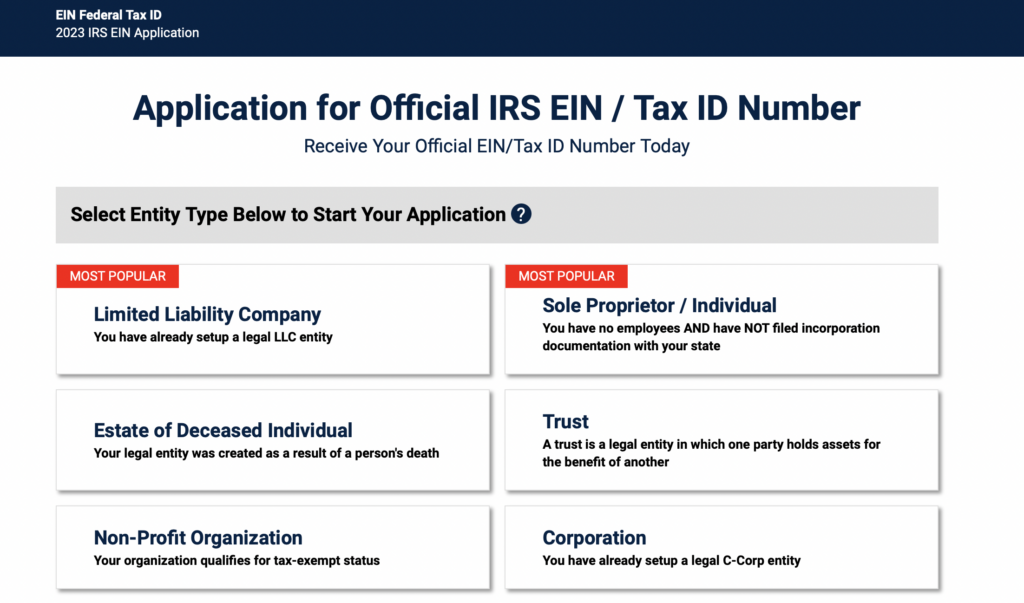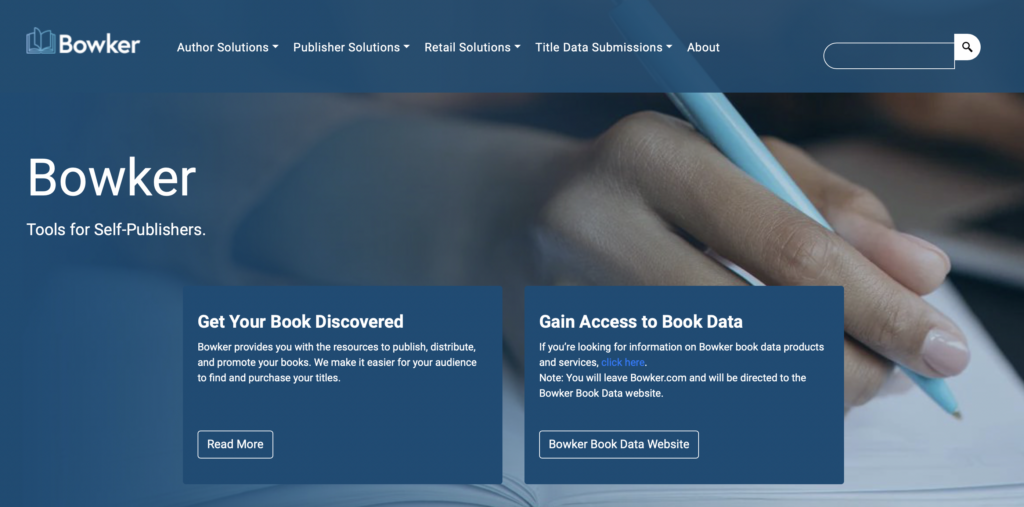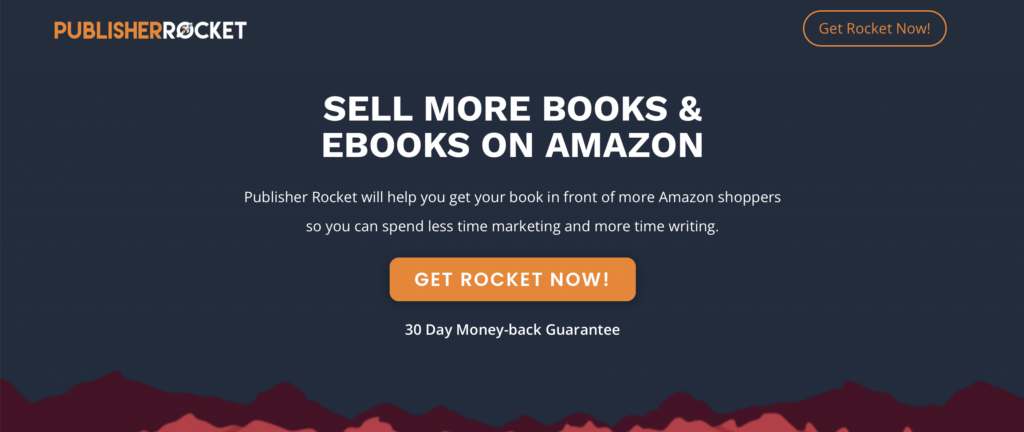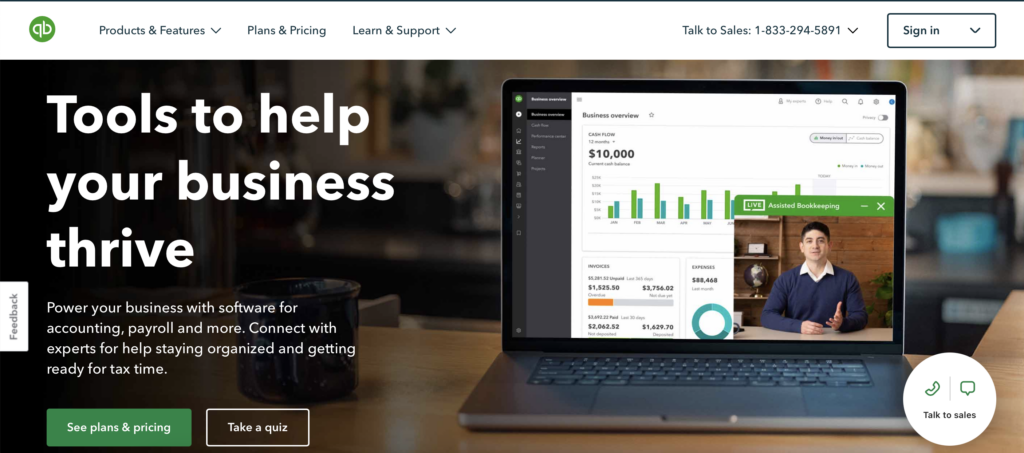How to Start a Publishing Company in Just 9 Quick & Easy Steps

When you buy something through one of the links on our site, we may earn an affiliate commission.
Do you dream of sharing the stories you love with the world? Maybe you are an author yourself, or maybe you just enjoy reading and editing the work of others. Either way, you might be interested in how to start a publishing company so that you can cash in on one of your favorite things: stories and books.
The good news is that starting a publishing company is a great way to earn some additional income. It is even a fairly flexible business model that can boost your personal income as you become a more established publishing house.
Better yet, you can do all of your work from the comfort of your own home.
From setting goals for your new business to managing your books, we've compiled everything you need to know to start publishing today. Let's dive in!
Contents
- How to Start a Publishing Company in 9 Easy Steps
- 1. Set Big Goals for Your Own Publishing Company
- 2. Pick a Business Name and Design Branding Elements
- 3. Settle on a Publishing Business Structure and Get an EIN
- 4. Get a Business Bank Account
- 5. Purchase ISBNs for Your Books
- 6. Hire Others for the Editing Process, Cover Art, and Formatting
- 7. Market Yourself to Authors or Consider Becoming a Self-Published Author
- 8. Market Your Book Backlist & New Books
- 9. Keep Track of Earnings with Accounting Software
- Final Thoughts: How to Start a Publishing Company
How to Start a Publishing Company in 9 Easy Steps
What do you need to do to learn how to start a publishing company quickly and easily? This publishing business could be your ticket to a lucrative income doing what you love. Here are the nine steps you need to follow to have long-term success in your endeavors.
1. Set Big Goals for Your Own Publishing Company

The first thing you need to do to start a publishing company is to evaluate what your goals are. Every single publishing company is unique in what they decide to publish, the number of titles they take on, and how they handle their business.
For example, you might be a traditional publishing company that works with literary agents to find new talent. You might serve a dual role as both the acquiring editor and the publisher, handling everything from the proofreading to the marketing.
On the other hand, you might prefer a hybrid publishing company where people pay you a small sum to take their book from good to great. They may pay a fee for the editing process as well as the time and money that you have invested into marketing. It is very similar to a self-publishing company where the author foots the bill for production costs.
You may even decide on a blend of the two models -- or something else altogether! Know what your goals are and how you fit into the publishing industry.
2. Pick a Business Name and Design Branding Elements

Once you know what type of publishing company you intend to run, deciding on your business name is the next step. Choose something that speaks to the type of books you want to publish: horror, sci-fi, fantasy, romance, or even non-fiction.
Don't box yourself in with a name unless you are absolutely sure that you won't want to expand into other services or genres later on down the road. This is where your big-picture planning can come in handy so that you know what your own publishing business is capable of handling.
For some creative publishing company name ideas, see our full list here.
Make sure that you choose a business name that is not already trademarked or copyrighted. Because your business will need an online presence, you should also ensure that it has domain availability on sites like Namecheap.
You will also want to design your branding elements: logos, websites, business cards, and more. Choose a color scheme that speaks to you and invest in high-quality design work. After all, these images will be the face of your new business.
Don't forget about web design on a WordPress website that can grow and scale with your new small business! We have compiled a list of tips to help you learn how to create a website for your business, even if you decide to go it alone and work on the site yourself.
3. Settle on a Publishing Business Structure and Get an EIN

If you want to start your own publishing company, it's important that everything is above board. You will need to make sure that your business structure is taken care of and everything is square legally for you to operate.
A limited liability company (LLC) or a sole proprietorship tends to be the most popular and easiest way for you to start your business. In a limited liability company, business assets are kept separate from your personal assets. However, it is still relatively easy to file taxes at the end of the year because of the pass-through tax benefits.
This is great if your publishing company is ever sued or goes under because it means that creditors can't go after your house, car, or anything else that belongs to you personally.
Be sure to check with your state to see which specific forms you need to file and what the fee will be to officially operate your book publishing company. Every state is a little different in what they require, and there may be a small fee to register as an LLC.
Once you have the structure established, you will need an Employer Identification Number (EIN). The IRS manages the distribution of EINs completely free. Don't skip this step as you start to immerse yourself in the publishing world.
Talk with an accountant if you have any questions about what business structure is right for your small business. Choosing the simplest business form might be okay for right now, but you need something that can grow and scale in the years to come.
4. Get a Business Bank Account

Do yourself a favor when it comes to managing your expenses, income, and taxes at the end of the year: open up a business bank account.
This will allow you to keep your personal finances and personal assets separate from those of the business.
Even a small publishing company can make a mess of things if business expenses are married to your personal assets. You won't know whether that Target run was for personal items or shipping materials for your own books. It's a lot easier to keep things separate if you have a different bank account with its own debit card.
This also means that you need to keep detailed receipts that show every purchase from this business bank account. We'll talk a little bit more about taxes later on.
5. Purchase ISBNs for Your Books

Books are identified for sale by an International Standard Book Number (ISBN). This is how companies will order books, how retailers sell books, and even how libraries decide what to add to their ever-changing inventory.
When you own your very own publishing company, you will need to purchase an ISBN for each of your published titles.
Many small publishing companies don't budget for this upfront when they start putting books in print. This is a huge mistake that could cost you. Even if you are on a strict budget to get your first books out into the world, this isn't an area that you can skimp on.
You can purchase one ISBN from Bowker for $125 or ten ISBNs for $295. When you get really deep into the writing and publishing world, you can buy them in larger sets of 100 or 1,000 at a substantial price break. Out of all your business expenses, this may be one of the biggest.
6. Hire Others for the Editing Process, Cover Art, and Formatting

You might want to run your own business, but there is going to come a time when you need a little bit of help on things that are outside of your wheelhouse.
Sometimes, you might be able to act as the CEO and editor of your own company. At other times, you might want to hire an outside editor to take a fresh look at a book you've spent a tremendous amount of time on.
Beyond editing, you also need to consider the cover art of each book. Most people still judge a book by its cover. Make sure that your books stand out from the competition but fit in on the shelves beside other books in your genre. A high-quality designer is key to long-term success.
Don't underestimate the importance of formatting, either. The way your books look on the inside when you put them for sale can impact whether someone will leave a positive review. Proper formatting is a necessity and can make the difference between a book that is easy to read and one that is abandoned.
7. Market Yourself to Authors or Consider Becoming a Self-Published Author

Are you truly ready to start your own company? If you are, then it is time to think beyond your business structure and think more about how authors will find you.
First, you might consider becoming a self-published author. This allows you to experiment with the world of publishing without the high stakes of investing in someone else's work.
If you plan to self-publish, you can play around with Amazon ads and even tools like KDSPY (see our full KDSPY review here).
When you think that you have worked out the kinks with your own books, you can start a publishing company that takes on other authors. You might start a social media channel, pay for Facebook ads, or market your services in trade publications like Writer's Digest. If you know any literary agents, you can also let them know that you are open for business and are interested in their clients' work.
8. Market Your Book Backlist & New Books

Marketing is key to starting a publishing company that thrives. Nobody will know that your books even exist if you don't put forth some serious effort into marketing. To this end, you can use key tools like Publisher Rocket to make you look like an even more established publishing company that knows what it's doing.
Publisher Rocket can help you pinpoint which keywords you need to target to make more sales. It also keeps track of what your competition is doing so that you can find creative ways to outrank other publishing companies. Select the right categories and even run an Amazon ads campaign from here.
You can see our full Publisher Rocket review here to determine if it's the right fit for your publishing company.
Of course, you need to market more than just your new releases. Promoting your backlist is a great way to boost sales and keep recurring income coming through the door of your publishing business. This means that you need to keep old titles up-to-date and fresh for an entirely new audience.
9. Keep Track of Earnings with Accounting Software

Finally, you are living the dream and have some money rolling in from your very own book publishing company. This means that you're selling books and making a profit -- congratulations! Now, it's time for you to keep track of your earnings using an accounting software program.
The most commonly used accounting software is QuickBooks, but Xero and FreshBooks are also great options. Having an online system is often the easiest and most cost-effective way to manage your books. You can do it entirely on your own instead of hiring someone to manage your successful publishing company.
The only downside is that you will have to monitor it to categorize incoming funds and outgoing expenses.
If you don't have time to manage this while juggling the responsibilities of a new publishing company, you may want to hire a bookkeeper or an accountant. An accountant can also ensure that you take advantage of pass-through tax benefits, get the IRS what they are owed, and file your annual taxes at the end of the fiscal year.
Final Thoughts: How to Start a Publishing Company
If you are ready to start a publishing company, keep in mind that this is still a small business that will require lots of hard work, financial investment, and time to get up and running. Publishing books is a great way to earn a lucrative income and help people share their stories.
Most people who are interested in starting a publishing company love stories and are eager to share them with the waiting world. Take the leap today and start your very own business doing what you love!
Want to learn step-by-step how I built my Niche Site Empire up to a full-time income?
Yes! I Love to Learn
Learn How I Built My Niche Site Empire to a Full-time Income
- How to Pick the Right Keywords at the START, and avoid the losers
- How to Scale and Outsource 90% of the Work, Allowing Your Empire to GROW Without You
- How to Build a Site That Gets REAL TRAFFIC FROM GOOGLE (every. single. day.)
- Subscribe to the Niche Pursuits Newsletter delivered with value 3X per week
My top recommendations

















